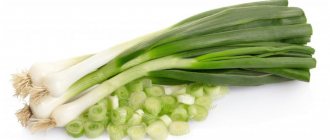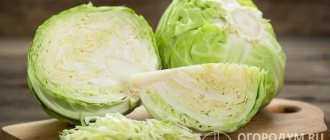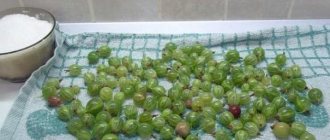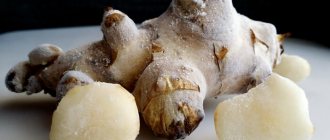Vegetable growing » Zucchini
1
820
Article rating
Kira Stoletova
Frozen vegetables are a good alternative to canned foods: vitamins are best preserved in this form, so their role in winter is enormous.
Freezing zucchini for the winter
Let's look at how to freeze zucchini for the winter at home. We reveal the secrets of experienced housewives.
The benefits of frozen zucchini
Zucchini is very useful for normalizing the water-salt balance in the body by removing excess fluid from it. Due to the content of a large number of essential elements and vitamins, it is used for many diseases.
Proper freezing of zucchini for the winter will ensure that the fruit retains its beneficial qualities until spring.
Nutritionists have conducted numerous studies, during which it turned out that they are one of the most inexpensive and reliable sources of substances important for the body during winter: vitamins A, B1, B2, C, PP, trace elements, minerals (including potassium, iron, magnesium , manganese, phosphorus, selenium, zinc, sodium).
Important information
Frozen zucchini can cause harm to the body only in one case - when defrosting and re-freezing. Once thawed, vegetables will spoil when exposed to air.
Further use
When you need frozen zucchini, remove the bag from the freezer and place it on a plate on the bottom shelf of the refrigerator. You can leave the vegetables to melt at room temperature, then the process will take a minimum of time, and after an hour you can start cooking. If you are going to stew the stew, you can add frozen pieces to the vegetables. The released water will only add juiciness to the dish. Thawed zucchini is suitable for cooking:
- vegetable side dishes;
- pancakes;
- squash caviar;
- cream soups;
- baby formulas.
If you have prepared zucchini boats or circles, then fill them with any filling you wish (chicken, minced pork or beef), sprinkle cheese on top and place in the oven for a few minutes. You will get delicious fried nests that can be served even without a side dish.
Try making several vegetable preparations in different ways, only then you will understand what suits you best. Each method has its advantages, but the end goal is always the same: the vegetable turns out tasty, aromatic and practically no different from fresh. Believe me, this will come in very handy in winter, reinforce your body with vitamins, and treat yourself to homemade deliciousness. We recommend a delicious recipe for sautéed zucchini that will be simply licking your fingers.
How to choose zucchini
Proper preparation for winter storage is very important.
Of course, the best option for freezing would be homemade fruits, but if they are not available, you need to select zucchini.
- They must be young - this can be seen by the thin peel, with small seeds inside.
- The color can be any: green, white, yellow. The main condition is that everything must be fresh, whole, clean, with shiny skin, without scratches, stains, or rotten places.
Only in this case will the prepared vegetables retain their vitamins and shape in the freezer throughout the winter.
Sluggish, long-harvested vegetables are not suitable, the same applies to unripe or overripe ones.
The next step for proper selection is to pierce the peel: if the zucchini is good, the peel is soft and easy to pierce. A hard and hard layer of skin indicates that the pulp is too fibrous.
Due to its composition, zucchini has a number of healing properties:
- Helps with anemia.
- Protects cells from damage due to oxidation.
- Strengthens the nervous system.
- Treats asthma, eye diseases, various bruises, inflammatory processes.
- Strengthens bones and teeth, allows bones to heal quickly in case of fractures, reduces the risk of osteoporosis.
- Supports the functioning of the heart and arteries, reduces blood pressure in case of high blood pressure.
- Has a beneficial effect on the liver, helps the outflow of bile.
- Improves the functioning of the gastrointestinal tract, cleanses it of toxins, waste, prevents the development of constipation and flatulence.
- Speeds up metabolism.
- Reduces the risk of developing cancer.
Eating zucchini is allowed every day; the norm for an adult reaches 1.5 kg per day. The best option is to add the product to a vegetable salad. The main thing is not to get carried away so as not to cause negative consequences for the intestines.
General rules for freezing
Vegetables must be prepared for freezing
To properly freeze zucchini, you need to prepare them:
- wash thoroughly;
- spread on a clean napkin and dry with a paper towel (excessive moisture on the surface is not needed) or wipe each fruit well;
- cut off the tails.
Another option for blanching is to keep the vegetables in boiling water for a couple of minutes. You need to place a pot of boiling water and a container of cold water next to it. Cut the zucchini into not very large pieces, place in a colander in boiling water, after 2 minutes remove and immerse in a container to cool. Lay out the pieces to dry.
If anyone doubts the taste of the preparations obtained using this method, you can simply blanch the chopped zucchini for about 3 minutes, spread them out and cool them completely. After which they are ready to be packaged and placed in the freezer.
Useful tips
Young zucchini can be left in the skin over the winter. They usually do not have seeds, but if they are found, the pulp will need to be removed.
If you come across fruits with a thick and rough skin, they definitely need to be peeled and the pulp and seeds removed.
Selection of vegetables and their preparation
Zucchini contains many useful mineral compounds, vitamins, and organic acids. In order for the beneficial properties to be preserved to the maximum when frozen, you need to sort the fruits and select only those that meet the characteristics presented below:
- there should be no damage on the surface of the vegetables;
- the skin is shiny and smooth to the touch;
- Zucchini should be medium in maturity. It is better not to use overripe ones for preparations, they lose their taste;
- The fruits should be firm to the touch.
If you are in doubt whether to use zucchini for the preparation or not, then pierce its skin in one place (somewhere in the middle) with a fork. If the skin is easily pierced and the flesh is soft, then the fruit can be taken. But hard and tough pulp is an indicator of fibrousness, which means the zucchini is not yet ready for harvesting.
If you pierce the skin, the vegetable is no longer suitable for long-term storage, so use it for cooking.
Ideally, the fruit should be picked immediately before harvesting, then it will be as fresh as possible and will lose fewer vitamins after processing. But it doesn’t always work out that way. Gardeners often collect zucchini in a few days, this is acceptable, but remember: the longer the zucchini sits in your home, the faster it will spoil and lose its taste. Over time, the skin loses its elasticity, and the pulp softens too much, which makes the fruit unsuitable for further use. If you put vegetables in a cool place for storage, the skin will most likely become stiff, and such preparation will not last long.
Once you have selected the fruits, prepare them for freezing. The procedure consists of several steps:
- vegetables are often soiled because they lie and ripen right on the ground. Rinse debris and soil off the skin several times with cool water;
- cut off the stalk to the very base; if there is a flower at one end, then cut it off;
- Place the washed zucchini on a dry waffle towel and wipe dry on all sides.
Culinary experts argue: should the seeds be removed from the pulp or can they be frozen directly with them? When harvesting young fruits, the seeds do not have time to form. which means there is no need to remove them. For mature zucchini with thick skin, be sure to remove the middle with the seeds and peel off the skin.
Harvesting methods
You can freeze homemade zucchini for the winter in different ways: fresh and fried. Let's look at the main ones.
In circles
This method is suitable for lovers of fried zucchini and casseroles.
Before final freezing, they must first be prepared: cover the board with plastic wrap, lay out rings 1-1.5 cm thick. Place in this form in the freezer until completely frozen.
This is done to maintain the shape of the circles so that they do not freeze to each other and break.
Take it out, pack it in bags or containers, and put it back until ready to cook.
Cubes
Freezing cubes is convenient to use
This preparation is convenient to use in winter for soup and stew.
Cut the zucchini into cubes (1-2 cm). Before distributing into bags, blot any juice that appears on the slices with a paper towel.
Package little by little (in such portions as to be enough for one time). You can put it in bags, tying them tightly, or in containers, closing them with lids. Place in the freezer.
There should be no air left in the bags. Flatten the bags into a flat layer - this will ensure quick coverage with cold.
In grated form
This method of freezing zucchini requires the use of a medium grater. Grate them, drain the excess liquid, distribute them into containers and place them in the chamber.
You can mix it with grated carrots - you get a ready-made mass for vegetable pancakes.
With rice
In combination with the fiber of zucchini, rice can provide the body with energy.
Procurement rules:
- Boil 1 cup of washed rice in salted water until half cooked.
- Heat the oil in a cauldron, fry 1 kg of onion in it, add rice, 1 kg of fresh zucchini cut into small pieces, add salt and spices at your discretion.
- Simmer for half an hour, covering with a lid.
- Place the completely cooled mixture in containers and place in the freezer.
Fried
You can also stock up on fried zucchini. You will end up with a ready-made dish that just needs to be heated in the microwave.
To do this, you need to cut vegetables into circles, add salt, roll in flour, and fry in vegetable oil. Place in a colander and allow excess liquid to drain from vegetables. Leave until completely cool.
Pack into prepared containers, close tightly, tie, and place in the freezer.
Puree
Zucchini puree is good for babies
For a child, it is best to freeze it in the form of zucchini puree: it is good for newborns and has a beneficial effect on the functioning of the gastrointestinal tract.
The prepared vegetables are cut into cubes, blanched in boiling water until almost completely cooked, and placed in a colander to drain the liquid. Grind to a puree consistency in a blender.
The puree is placed in portions into containers, tightly closed, and placed in the freezer. In this form, the puree can be stored for 8 to 10 months. It cannot be defrosted and re-frozen.
For infants, it is advisable to prepare the puree separately, making it from the youngest vegetables - it will be more tender.
Entirely
Young, tender, small-sized vegetables can be used whole. Of course, they take up a lot of space in the freezer. This needs to be taken into account.
In regions where temperatures are below 10°C most of the year, you can store frozen foods on an icebox, in the basement of a house, etc.
Reviews from housewives
Kiseleva Lyudmila, Kazan: “I’ve been freezing zucchini for several years now. It's so convenient, I don't understand why not everyone does it. I have my own rule: I wash the zucchini in three waters before freezing. The skin becomes soft and is completely invisible when cooking.”
Olga Evtunaeva, Nizhnekamsk: “I froze zucchini for the first time this summer. We live with a large family and need to cook several times a day. Plus we have a lot of kids. Frozen zucchini is an excellent complementary food for infants.”
Kristina Shemakhina, Yekaterinburg: “My grandmother taught me how to freeze zucchini. I never freeze them in plastic containers. There is no way to remove the air from them. But zucchini doesn’t like it. That's why I use double plastic bags. Most often I ice it in circles because I cook them with potatoes in the oven or simply fry them. You know, in winter you so often want a piece of summer.”
Elena Mironenko, Cheboksary: “I love zucchini in any form. We plant different varieties. My advice to summer residents: do not put off freezing until the end of the season, when you are already tired of the harvest. Do the opposite. The first fruits have arrived - we freeze them right away. The first vegetables are stored much longer, they contain many useful substances. And once you have prepared your supplies for the winter, eat fresh zucchini for your health.”











